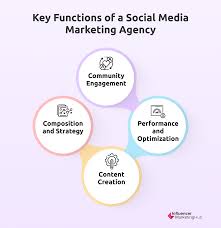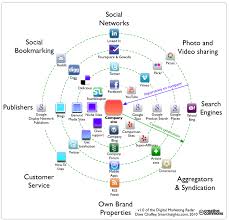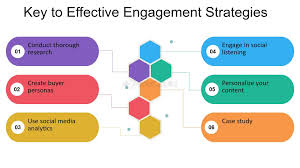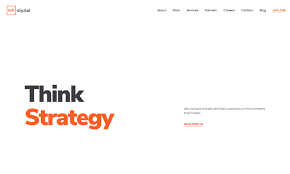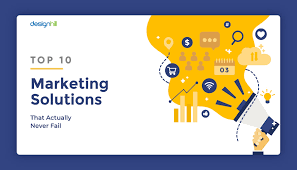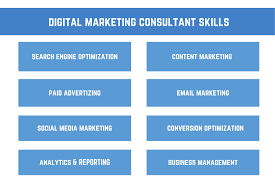Marketing Solutions: Unleashing the Power of Effective Strategies
In today’s fast-paced and highly competitive business landscape, marketing has become more crucial than ever before. It plays a vital role in helping businesses connect with their target audience, build brand awareness, and drive growth. However, with the multitude of platforms and channels available, finding the right marketing solutions can be a daunting task. That’s where effective marketing strategies come into play.
Marketing solutions encompass a range of tactics and approaches that are tailored to meet the specific needs of each business. From traditional methods such as print advertising and direct mail to digital strategies like social media marketing and content creation, there is no one-size-fits-all solution. The key lies in creating a well-rounded marketing plan that combines various techniques to achieve maximum impact.
One of the most important aspects of successful marketing solutions is understanding your target audience. Who are they? What are their needs and preferences? By conducting thorough market research and customer analysis, businesses can gain valuable insights into their audience’s behaviours and motivations. This knowledge forms the foundation for crafting targeted messages that resonate with potential customers.
Another critical element in effective marketing solutions is choosing the right channels for reaching your audience. With the rise of digital platforms, businesses now have an array of options at their disposal – websites, search engine optimization (SEO), pay-per-click (PPC) advertising, email marketing, social media platforms, and more. Each channel has its strengths and weaknesses, so it’s essential to select those that align with your business goals and target audience.
Content creation also plays a significant role in modern marketing solutions. Engaging and relevant content helps businesses establish thought leadership, build trust with their audience, and drive organic traffic to their websites or social media profiles. Whether it’s blog articles, videos, infographics or podcasts, high-quality content positions your brand as an expert in its field while providing value to your customers.
Furthermore, measuring and analyzing the effectiveness of marketing efforts is crucial for continuous improvement. By tracking key performance indicators (KPIs) such as website traffic, conversion rates, and customer engagement, businesses can gain insights into what strategies are working and what needs adjustment. This data-driven approach allows for informed decision-making and the ability to optimize marketing campaigns for better results.
In today’s digital age, personalization has become a vital aspect of marketing solutions. Tailoring messages and experiences to individual customers helps businesses create meaningful connections and foster loyalty. Techniques such as segmentation, email automation, and personalized recommendations based on customer preferences can significantly enhance the effectiveness of marketing efforts.
Ultimately, effective marketing solutions revolve around understanding your audience, selecting the right channels, creating compelling content, measuring results, and personalizing experiences. By combining these elements in a cohesive strategy, businesses can reach their target market effectively, build brand awareness, drive engagement, and ultimately achieve their growth objectives.
At [Your Company Name], we understand the challenges businesses face in navigating the ever-evolving marketing landscape. Our team of experienced professionals is dedicated to helping you develop tailored marketing solutions that align with your goals and deliver tangible results. Contact us today to unlock the power of effective marketing strategies and take your business to new heights.
6 Essential Tips for Effective Marketing Solutions in the UK
- Identify your target audience and focus your messaging on them.
- Develop a comprehensive marketing strategy that includes both online and offline tactics.
- Utilise social media to reach new customers and engage with existing ones.
- Implement an email marketing campaign to keep in touch with customers and prospects alike.
- Leverage the power of search engine optimisation (SEO) to be found by potential customers online more easily.
- Monitor performance metrics regularly to measure the success of your marketing solutions and make adjustments as needed for maximum results.
Identify your target audience and focus your messaging on them.
Identify Your Target Audience and Focus Your Messaging on Them: A Key Tip for Effective Marketing Solutions
In the world of marketing, one size does not fit all. To achieve success and stand out from the competition, businesses must identify their target audience and tailor their messaging specifically to them. This is a fundamental tip for effective marketing solutions that can make a significant impact on your business’s growth.
Understanding your target audience is the first step towards creating a successful marketing strategy. Who are your ideal customers? What are their demographics, interests, and pain points? By delving into these details, you can develop a clear picture of who you should be targeting with your messaging.
Once you have identified your target audience, it’s time to focus your messaging on them. Crafting compelling messages that resonate with their needs and desires is key to capturing their attention and driving engagement. Speak directly to their pain points and offer solutions that address their specific challenges.
By tailoring your messaging to your target audience, you create a sense of relevance and connection. When customers feel like you understand them and their unique circumstances, they are more likely to engage with your brand and become loyal customers.
To effectively focus your messaging on your target audience, consider the following strategies:
- Use language that speaks directly to them: Understand the language preferences of your target audience and use it in your marketing materials. Whether it’s formal or casual, technical or simplified, adapting your tone will help establish a stronger connection.
- Highlight benefits that matter to them: Clearly communicate how your product or service solves their problems or improves their lives. Focus on the benefits that are most important to them rather than just listing features.
- Utilize targeted channels: Identify the platforms where your target audience spends most of their time and concentrate your efforts there. Whether it’s social media platforms like Facebook or LinkedIn or industry-specific publications, reaching them through the right channels increases the likelihood of engagement.
- Personalize your messaging: Tailor your messages to specific segments within your target audience. By recognizing their unique needs and preferences, you can deliver more personalized and relevant content that resonates with them on a deeper level.
Remember, identifying your target audience and focusing your messaging on them is not a one-time task. It requires continuous monitoring and adaptation as customer preferences and market dynamics change. Regularly reassessing your target audience and refining your messaging ensures that you stay relevant and maintain a strong connection with your customers.
At [Your Company Name], we understand the importance of identifying your target audience and crafting effective messaging that resonates with them. Our team of marketing experts can help you develop strategies that capture the attention of your ideal customers, drive engagement, and ultimately lead to business growth. Contact us today to unlock the power of targeted marketing solutions tailored to your audience’s needs.
Develop a comprehensive marketing strategy that includes both online and offline tactics.
Developing a Comprehensive Marketing Strategy: Harnessing the Power of Online and Offline Tactics
In today’s digital age, it’s easy to get caught up in the allure of online marketing. While online tactics undoubtedly offer numerous benefits, it’s crucial not to overlook the power of offline strategies. The key to success lies in developing a comprehensive marketing strategy that seamlessly integrates both online and offline tactics.
Online marketing solutions have revolutionized the way businesses connect with their target audience. With the vast reach of the internet, businesses can now engage with customers on a global scale. From social media platforms and search engine optimization to email marketing and content creation, online tactics allow for precise targeting, real-time analytics, and instant communication.
However, it would be remiss to disregard traditional offline tactics that have stood the test of time. Offline strategies such as print advertising, direct mail campaigns, networking events, trade shows, and billboards still hold significant value in reaching specific demographics and establishing a tangible presence in the physical world.
By combining both online and offline tactics in a comprehensive marketing strategy, businesses can leverage the strengths of each approach to maximize their impact. Here are some reasons why integrating online and offline solutions is essential:
- Expanding Reach: Online marketing allows businesses to reach a global audience instantly. However, offline tactics can help target local markets more effectively. By combining both approaches, businesses can expand their reach both locally and globally.
- Building Brand Consistency: A cohesive brand image is essential for building trust with customers. Integrating online and offline strategies ensures consistent messaging across all channels, reinforcing brand identity and creating a unified customer experience.
- Engaging Multiple Audiences: Different demographics may respond better to specific channels or mediums. By diversifying your marketing efforts with both online and offline tactics, you can engage multiple audiences simultaneously.
- Enhancing Customer Engagement: Online platforms offer interactive features that encourage customer engagement such as comments sections or online polls. Offline tactics, on the other hand, provide opportunities for face-to-face interactions and personal connections that can foster stronger customer relationships.
- Amplifying Campaign Impact: By integrating online and offline strategies, businesses can amplify the impact of their marketing campaigns. For example, promoting an offline event through online channels can generate greater attendance and reach a wider audience.
- Flexibility and Adaptability: The marketing landscape is ever-evolving, with new trends and technologies emerging constantly. By having a comprehensive strategy that encompasses both online and offline tactics, businesses are better equipped to adapt to changes and stay ahead of the competition.
In conclusion, developing a comprehensive marketing strategy that includes both online and offline tactics is essential for businesses seeking to maximize their reach, engage with diverse audiences, build brand consistency, and adapt to the evolving marketing landscape. By harnessing the power of both approaches, businesses can create a holistic marketing plan that delivers tangible results.
Utilise Social Media: The Gateway to Reaching New Customers and Engaging with Existing Ones
In today’s digital era, social media has revolutionized the way businesses connect with their target audience. With billions of people actively using platforms like Facebook, Instagram, Twitter, and LinkedIn, social media has become an invaluable tool for marketing solutions. It not only allows businesses to reach new customers but also provides a platform for engaging with existing ones on a more personal level.
One of the key benefits of utilising social media as part of your marketing strategy is its vast reach. These platforms provide access to a global audience, allowing businesses to extend their brand awareness beyond traditional boundaries. By creating compelling content that resonates with your target market, you can capture the attention of potential customers who might not have discovered your business through other channels.
Moreover, social media offers unparalleled opportunities for engagement and interaction. It allows businesses to have direct conversations with their audience, fostering a sense of community and building relationships. By responding promptly to comments and messages, addressing customer concerns, and sharing valuable insights or updates, you can cultivate trust and loyalty among your existing customers.
Social media also provides valuable insights into consumer behavior and preferences through analytics tools. These tools allow you to track metrics such as engagement rates, reach, impressions, and demographics. By analysing this data, you can gain valuable insights into what content resonates most with your audience and refine your marketing strategies accordingly.
Additionally, social media platforms offer various advertising options that enable businesses to target specific audiences based on demographics, interests, or behaviours. This level of precision ensures that your marketing efforts are reaching the right people at the right time. Whether it’s running paid ads or leveraging influencer partnerships within your industry niche, social media presents endless possibilities for reaching new customers effectively.
Furthermore, social media provides an avenue for showcasing your brand’s personality and values. Through visually appealing posts or engaging video content, you can humanise your brand and create an emotional connection with your audience. By sharing behind-the-scenes glimpses, customer success stories, or user-generated content, you can foster a sense of authenticity and build a loyal community of brand advocates.
To make the most of social media as a marketing solution, it’s essential to develop a comprehensive strategy. Identify which platforms align best with your target audience and focus your efforts on those channels. Create a content calendar that includes a mix of informative, entertaining, and promotional posts to keep your audience engaged. Regularly monitor and respond to comments, messages, and mentions to show that you value their feedback.
In conclusion, social media has become an indispensable tool for businesses seeking effective marketing solutions. By utilising these platforms to reach new customers and engage with existing ones, businesses can expand their brand’s reach, build meaningful connections, and drive growth. Embrace the power of social media in your marketing strategy today to unlock its vast potential for success.
At [Your Company Name], we understand the power of social media in driving business growth. Our team of experts can help you develop tailored social media strategies that align with your goals and target audience. Contact us today to harness the full potential of social media as part of your marketing solutions.
Implement an email marketing campaign to keep in touch with customers and prospects alike.
Implementing an Email Marketing Campaign: Strengthening Connections with Customers and Prospects
In today’s digital age, where communication happens at the click of a button, businesses must find effective ways to stay connected with their customers and prospects. One powerful tool that has stood the test of time is email marketing. Implementing an email marketing campaign allows businesses to maintain regular contact, share valuable information, and nurture relationships with their audience.
An email marketing campaign offers numerous benefits for businesses of all sizes. Firstly, it provides a direct line of communication with customers and prospects. By obtaining permission to send emails, businesses can reach their audience’s inbox, ensuring their messages are seen amidst the noise of other marketing channels.
One key advantage of email marketing is its cost-effectiveness. Compared to traditional advertising methods like print media or direct mail, email campaigns require minimal investment while offering a high return on investment (ROI). With the right strategy and compelling content, businesses can engage their audience without breaking the bank.
Furthermore, an email marketing campaign allows for personalized communication. By segmenting your audience based on demographics or past interactions, you can tailor your messages to specific groups. This personalization helps create a more meaningful connection with recipients and increases the chances of engagement and conversion.
Another significant benefit is the ability to track and analyze campaign performance. Email marketing platforms provide valuable insights into metrics such as open rates, click-through rates (CTRs), and conversion rates. This data enables businesses to refine their strategies over time, optimizing future campaigns for better results.
To implement a successful email marketing campaign, it’s crucial to focus on delivering value to recipients. Sending regular newsletters or updates that contain relevant industry news, helpful tips, exclusive promotions or discounts can keep customers engaged and interested in your brand. By providing valuable content rather than purely promotional material, you build trust and establish yourself as an authority in your field.
It’s important to note that building an effective email list requires obtaining permission from recipients. Implementing a clear opt-in process on your website, offering incentives like free resources or exclusive content, and ensuring compliance with data protection regulations are essential steps in building a quality email list.
Lastly, maintaining consistency is key. Regularly sending emails keeps your brand top of mind for customers and prospects. However, it’s crucial to strike a balance between staying in touch and avoiding overwhelming your audience with excessive emails. Finding the right frequency that suits your audience’s preferences is essential for maintaining engagement.
In conclusion, implementing an email marketing campaign offers businesses a powerful tool to stay connected with customers and prospects alike. By providing valuable content, personalizing messages, tracking performance, and maintaining consistency, businesses can strengthen relationships, drive engagement, and ultimately achieve their marketing goals. So why wait? Start harnessing the potential of email marketing today and unlock new opportunities for growth.
Leverage the power of search engine optimisation (SEO) to be found by potential customers online more easily.
Leverage the Power of SEO: Be Found by Potential Customers Online Easily
In today’s digital age, having a strong online presence is paramount for businesses looking to thrive in a competitive market. With millions of websites and countless competitors vying for attention, it’s crucial to stand out and make it easy for potential customers to find your business. One powerful tool that can help achieve this is Search Engine Optimisation (SEO).
Search Engine Optimisation is the process of improving your website’s visibility on search engine results pages (SERPs) organically. By optimizing various elements of your website, such as content, keywords, meta tags, and backlinks, you can increase your chances of ranking higher in search engine results.
Why is this important? Well, think about how you search for products or services online. Most people turn to search engines like Google when they have a specific need or question. They type in relevant keywords and expect to find the most relevant and trustworthy results. Being one of those top results can significantly increase your chances of attracting potential customers.
By leveraging the power of SEO, you can ensure that your website appears prominently when users search for keywords related to your business. This means that potential customers who are actively seeking what you offer will be more likely to find you easily.
SEO not only helps drive organic traffic to your website but also builds credibility and trust with potential customers. When your website ranks highly on search engines, users perceive it as a reliable source of information or products/services. This trust factor can greatly influence their decision-making process and increase the likelihood of conversion.
To effectively leverage SEO, it’s essential to conduct thorough keyword research to identify the terms and phrases that potential customers are using when searching for businesses like yours. By strategically incorporating these keywords into your website’s content and metadata, you can signal relevance to search engines and improve your chances of ranking higher.
Additionally, creating high-quality content that provides value to your audience is crucial. Search engines prioritize websites that offer informative and engaging content. By regularly publishing relevant blog posts, articles, or videos, you can establish yourself as an authority in your industry and attract more organic traffic.
It’s important to note that SEO is an ongoing process. Search engine algorithms are constantly evolving, and competition is fierce. Regularly monitoring your website’s performance, adjusting your strategies, and staying up-to-date with the latest SEO trends can help you maintain a strong online presence and continue attracting potential customers.
At [Your Company Name], we understand the significance of SEO in today’s digital landscape. Our team of experts specializes in crafting tailored SEO strategies that help businesses improve their online visibility, attract targeted traffic, and ultimately increase conversions. Contact us today to discover how we can help you leverage the power of SEO and be found by potential customers online more easily.
Monitoring Performance Metrics: The Key to Maximizing Marketing Solutions
In the dynamic world of marketing, staying on top of your game requires more than just implementing strategies. It’s essential to regularly monitor performance metrics to measure the success of your marketing solutions and make necessary adjustments for maximum results.
Performance metrics provide valuable insights into the effectiveness of your marketing efforts. They help you understand what is working well and what needs improvement, allowing you to fine-tune your strategies accordingly. By regularly tracking these metrics, you can make data-driven decisions that optimize your marketing campaigns and drive better outcomes.
One crucial performance metric to monitor is website traffic. By analyzing the number of visitors, page views, and bounce rates, you can gauge the level of interest and engagement generated by your marketing initiatives. A significant increase in traffic indicates that your strategies are attracting attention, while a high bounce rate may signal a need for adjustments in targeting or content.
Conversion rates are another vital metric to keep an eye on. Tracking how many visitors take desired actions, such as making a purchase or filling out a contact form, provides insights into the effectiveness of your calls-to-action and overall conversion funnel. If conversion rates are low, it may be worth revisiting your messaging or user experience to improve conversion optimization.
Customer engagement metrics are also crucial indicators of marketing success. Monitoring metrics like social media interactions (likes, comments, shares), email open rates, and click-through rates helps you understand how well you’re connecting with your audience. High engagement suggests that your content resonates with customers and encourages them to interact with your brand.
Furthermore, tracking return on investment (ROI) is essential in evaluating the overall effectiveness and profitability of your marketing solutions. By comparing the costs invested in various campaigns against revenue generated, you can determine which strategies deliver the best returns. This insight allows you to allocate resources more efficiently and focus on initiatives that yield the highest ROI.
Regularly monitoring performance metrics enables you to identify trends, patterns, and opportunities that may otherwise go unnoticed. It empowers you to make informed decisions based on real data, rather than relying on assumptions or guesswork. By continuously evaluating the performance of your marketing solutions, you can adapt and optimize your strategies for better results.
Remember that marketing is an iterative process. What works today may not work tomorrow, as consumer preferences and market dynamics evolve. By staying vigilant and proactive in monitoring performance metrics, you can stay ahead of the curve and make adjustments as needed to maintain a competitive edge.
At [Your Company Name], we understand the importance of regularly monitoring performance metrics in maximizing marketing success. Our team of experts can help you set up robust tracking systems, analyze data effectively, and provide actionable insights for continuous improvement. Contact us today to take your marketing solutions to new heights by harnessing the power of performance metrics.



